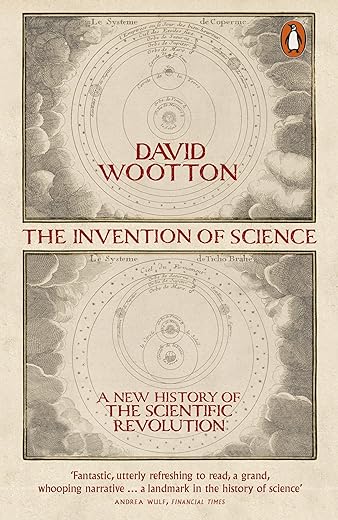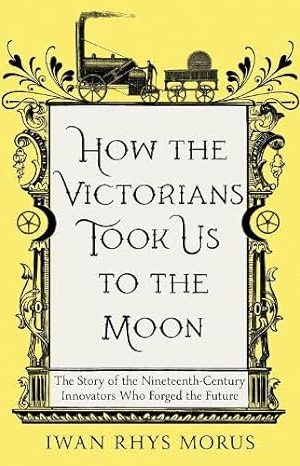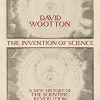The Invention of Science: A New History of the Scientific Revolution
£14.70£18.00 (-18%)
We live in a world made by science. How and when did this happen? This book tells the story of the extraordinary intellectual and cultural revolution that gave birth to modern science, and mounts a major challenge to the prevailing orthodoxy of its history.
Before 1492 it was assumed that all significant knowledge was already available; there was no concept of progress; people looked for understanding to the past not the future. This book argues that the discovery of America demonstrated that new knowledge was possible: indeed it introduced the very concept of ‘discovery’, and opened the way to the invention of science.
The first crucial discovery was Tycho Brahe’s nova of 1572: proof that there could be change in the heavens. The telescope (1610) rendered the old astronomy obsolete. Torricelli’s experiment with the vacuum (1643) led directly to the triumph of the experimental method in the Royal Society of Boyle and Newton. By 1750 Newtonianism was being celebrated throughout Europe.
The new science did not consist simply of new discoveries, or new methods. It relied on a new understanding of what knowledge might be, and with this came a new language: discovery, progress, facts, experiments, hypotheses, theories, laws of nature – almost all these terms existed before 1492, but their meanings were radically transformed so they became tools with which to think scientifically. We all now speak this language of science, which was invented during the Scientific Revolution.
The new culture had its martyrs (Bruno, Galileo), its heroes (Kepler, Boyle), its propagandists (Voltaire, Diderot), and its patient labourers (Gilbert, Hooke). It led to a new rationalism, killing off alchemy, astrology, and belief in witchcraft. It led to the invention of the steam engine and to the first Industrial Revolution. David Wootton’s landmark book changes our understanding of how this great transformation came about, and of what science is.
Read more
Additional information
| Publisher | 1st edition (29 Sept. 2016), Penguin |
|---|---|
| Language | English |
| Paperback | 784 pages |
| ISBN-10 | 0141040831 |
| ISBN-13 | 978-0141040837 |
| Dimensions | 12.4 x 3.5 x 19.8 cm |




by F Henwood
This book has a simple but provocative thesis: science was invented at a particular time and at a particular place. When and where? From the 16 to 17th centuries, in Western Europe. One reviewer – who surely has not read the book with great care, if he has read the book at all – has accused the author of ‘Eurocentrism’.
This label simply misses the point – which is a very simple one. There is no doubt that other cultures invented things and even sporadically discovered things. But the key difference in the West, in the 16th and 17th Centuries, was the intellectual revolution in attitudes to authority. Before the 16th Century, in the West, it was assumed that there was no new knowledge to be had. The ancients knew all that was to know and that there was nothing new under the sun. Other civilisations likewise had the quest for knowledge circumscribed by the authority of ancient or revealed texts – Confucianism in China, the authority of the Koran in the Ottoman Empire.
So, before the 16th Century, the West was like every other advanced culture; all assumed that there was nothing to new to know. From the 16th and 17th Centuries, the West diverged from the rest of the world in utterly overturning this assumption. The ancients did not know everything. There were things to be discovered. This is a simple idea but shattering in its implications. As the the author states:
” … it was the idea of discovery that made the new science, and the new set of intellectual values that underpinned it, possible. When you think about it, this is a simple and obvious truth – but it is that one historians of science, who want to maintain that every culture has its own science and that they are all equally valid, have failed to grasp. The discovery enterprise is no mote universal than cricket, baseball or soccer …(p. 108)
Indeed, Newton, when he discovered the theory of gravity, was at first convinced that the ancients must have already known it – they just lacked the mathematics to express it. Such seeming modesty from Newton of all people was not a reflection of his humility (he was hardly the most modest of men) but of the grip of the dead hand of the past still had on him. Had he lived a 100 years later, he would not have thought that.
The author then goes on to examine all the facets of what we consider to be science: facts (no such word in English before this period), experiments, verification, hypotheses/theories, evidence and judgement, the discovery of natural laws, the applying of mathematics to describe and explain physical reality. All these features emerged from the the West in the space of two centuries and it is a method – like western medicine – that has universalised itself.
If I have to knock one star off it is because I did not find the book the easiest of reads, from the sheer accumulation of detail the author amasses to back his underlying case, the clarity and persuasiveness of which is easy to accept. Still, I learned a lot and I would want to revisit it, for I am sure it will yield further insights on a second reading.
by Starlight
This book is both exhaustive and exhausting!the History and Histories of science are looked at in massive detail in order to establish that what we call today ”Science” , characterized by the descriptions and depictions of scientific results came to birth once only at the turn of the 16th/17th century. That something or things happened then in the minds of investigators which cleared away the old relation to the world of philosophers and thinkers and by means of a great Revolution set in train the scientific method and way of thinking that in principle is the only true one and will never be replaced even though its subject matter will change is stated abundantly with copious evidence obtained by this very same state of scientific investigation which claims to be the only possible one.(”The only true God”).
The last words of the book are approx ,”It has now become difficult to think our way back into a world where people did not speak of facts hypotheses and theories ,where knowledge was not grounded in evidence ,where Nature did not have laws .The scientific revolution has almost become invisible because it has been so successful”.
Well a lot of this is undeniable. A new form of ”knowing” supplanted the old forms in which humans had a different relation to Nature one less ”objective ” certainly and not one where nature was something purely material over which to exercise dominion and control rather like a man controlling a machine. Certainly this type of objective mathematized science supplanted the old one which could not adequately address those questions..But WHY?… because self evidently that was not its task!Those cultures asked other questions which were matters of life and death to them .By the era this book covers those questions no longer seemed so essential and others took their place. But that ancient cultures might very well have placed other tasks and attitudes above those of today ,Eg the nature of a divine world or of entities of nature and natural forces with which one sought ”communion”rather than control is inconceivable to this science of today.
There is a massive hole in the science considered by this book exhaustive as it is. The hole is the concept of Evolution.
Science itself is something that evolves,but this must be taken in the sense outlined by Robert .R. Richards in his work on the Goethean revolution in science which is so sidelined by the materialistic science which perceives ”Evolution”only in the sense of chance adaptations (which DO occur in the science characterized by Wootton) but not in the sense of unfolding and flowering of a seed or germ into higher forms. Therefore by 1800 the new step in philosophy ,science and art towards a united approach to life and society was already announced in the morphological work of Goethe ;the philosophy of idealists and the culture generally of middle europe.
About this we hear absolutely nothing from Wootton.
True we have a science that claims for itself ”al lobjective truth ”and a sort of ”Eternal life’.’A science ideal for a world to which we have no relation other than that of ”Master” or ”Mill Owner”.
But there is another relation possible one which lies in the evolutionary being of science as expressed by Goethe in his famous, ”When the healthy nature of Man works as one whole ,when he feels himself to exist in the world as in a great and beautiful whole ,when the harmonious sense of well-being imparts to him a pure and free delight ,then the universe if it could be conscious of itself would shout for joy and admire the summit of its own becoming and being.
Therefore a revolution may very well be waiting to break through today under the surface of the iron rule of Gradgrindian facts and their accompanying slavery and ”Hard spiritual Times”.
We might paraphrase the end of Wootton’s great achievement differently;
”It is difficult for most people to think their way forwards into a world where people do not only talk about facts hypotheses and theories established about Nature as if we as humans had no part in it physically psychologically and spiritually(in our consciousness and intelligence)and where knowledge will depend on a wider meaning of ”evidence” attained in a different attitude than at present and where Nature’s laws and human knowing are attuned to each other in conscious cooperation and not in exploitative inquisition after the manner of Bacon. The next scientific revolution will open doors into this much truer and fuller experience of both nature and ourselves and despite the wonders of artificial minds and ”intelligence” may be stirring even now.